The bizarre consequences of a warming world can no longer be ignored.

Every California diver I know has a recent story about when they first noticed things were changing at our local dive sites. Some recall their local kelp bed looking thin, while others mention the presence of yellowfin tuna on every shore dive, the range extension of a Mexican nudibranch or the appearance of a skinny baby sea lion on the swim step of their dive boat. For me it was when a three-metre-long smooth hammerhead shark curiously bumped my camera rig. It was August 2014, and it was no secret that the surface waters were a few degrees warmer than normal.
On that day the swell and wind were formidable, but we were determined to get offshore. We hoped to get a good look at the hammerhead sharks typically a subtropical species that had been spotted at the surface by one or two multiday dive boats over the past few weeks. We couldn’t believe our luck when one showed up and interacted closely (at times, very closely) with us for three hours.
Among divers the rumoured cause for the oddities of the summer of 2014 was El Niño (the warm phase of the El Niño Southern Oscillation), an ocean-atmosphere interaction in the east-central equatorial Pacific that strongly influences ocean conditions and weather patterns. However, the U.S. National Oceanic and Atmospheric Administration (NOAA) had not confirmed the presence of El Niño conditions. Meanwhile, Washington state climatologist Nick Bond had already come up with an alternate name for the odd patch of warmer-than-usual ocean off the coast of the Pacific Northwest: “The Blob.” This phenomenon, thought to be the result of locally persistent high pressure that inhibited normal wind-driven oceanic upwelling and cooling, had spread along the West Coast and encompassed multiple stretches of ocean from Alaska to Mexico.
Esta historia es de la edición Issue 05 - 2016 de Scuba Diver.
Comience su prueba gratuita de Magzter GOLD de 7 días para acceder a miles de historias premium seleccionadas y a más de 9,000 revistas y periódicos.
Ya eres suscriptor ? Conectar
Esta historia es de la edición Issue 05 - 2016 de Scuba Diver.
Comience su prueba gratuita de Magzter GOLD de 7 días para acceder a miles de historias premium seleccionadas y a más de 9,000 revistas y periódicos.
Ya eres suscriptor? Conectar
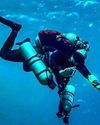
The Making Of A World Record-Breaking Diver
Descending more than 300 metres into the depths of the ocean may sound like a daunting prospect to even the most seasoned diver. But to one man, it was just another a challenge that he set for himself to see how far he was able to push the envelope.

Risk Mitigation: Hose Failure
An unexpected outcome
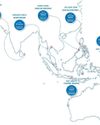
Top 10 Wrecks Of Asia-Pacific
We present a curated list of the top 10 most famous wrecks found in the Asia-Pacific region, listed in no particular order
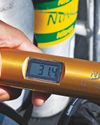
From The Medical Line: Diving After DCS
DAN medical information specaialists and researchers answer your dive medicine questions

Cave Exploration: Beginning With The End In Mind
Building complex adventures on simple skills
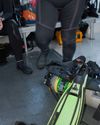
Dive Slate: Stay Safe On Board
When preparing for a dive, safety is at the top of the list – checking gear, learning potential site hazards and discussing procedures with your divemaster or buddy.

101 Tips On Becoming A Better Tek Diver
Technical diving takes divers beyond the typical recreational scuba diving limits, opening up many new and exciting possibilities.
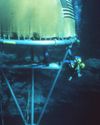
TECHNICAL DIVING TIMELINE (1660–1999)
It’s fair to say that the emergence of “technical diving” in the late 1980s, that is, the introduction of mixed gas technology, and later mixed gas rebreathers to the sport diving community, represented the culmination of hundreds of years of scientific discovery and technological development.

FLYING AFTER DIVING
From the Safety Stop

DIAGNOSING DECOMPRESSION ILLNESS
Incident Insight